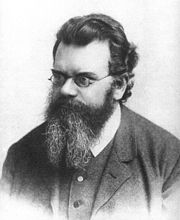2:26 AM
2 hours later…
5:29 AM
> Personnel, which is allowed to access “clean” rooms should be positively oriented towards maintaining cleanliness.
Am I right to think that this is a broken non-restrictive clause, and that the information after the comma is "additional"?
I think that when a translator translates this and puts a comma right where there's a comma in the Russian original sentence, he commits a mistake.
You cannot take away the bolded part from the Russian sentence. It is essential. Only the persons who have access to cleanrooms must be oriented towads maintaining cleanliness.
In English, you should avoid using a comma there. Or else you would create a non-restrictive clause.
However, in some cases it is okay. I remember asking a couple of questions on SE where I turned out to be wrong in "correcting" other Russian translators.
5:49 AM
Generative Pre-trained Transformer 3 (GPT-3) is an autoregressive language model that uses deep learning to produce human-like text. It is the third-generation language prediction model in the GPT-n series (and the successor to GPT-2) created by OpenAI, a San Francisco-based artificial intelligence research laboratory. GPT-3's full version has a capacity of 175 billion machine learning parameters. GPT-3, which was introduced in May 2020, and was in beta testing as of July 2020, is part of a trend in natural language processing (NLP) systems of pre-trained language representations. Before the...
6:16 AM
6:44 AM
6 hours later…
12:40 PM
> If the display shows the wrong measurement mode, the SCALE key should be pressed until the desired mode is displayed.
1:42 PM
1 hour later…
4:43 PM
12
![]() No, quite the opposite. If the universe is truly infinite and approximately homogeneous, then I invite you to point in some direction in the sky at night, and if you travel far enough in that direction, you might have to point through several stars and planets and alien organisms to get there, bu...
No, quite the opposite. If the universe is truly infinite and approximately homogeneous, then I invite you to point in some direction in the sky at night, and if you travel far enough in that direction, you might have to point through several stars and planets and alien organisms to get there, bu...

The Boltzmann brain argument suggests that it is more likely for a single brain to spontaneously and briefly form in a void (complete with a false memory of having existed in our universe) than it is for the universe to have come about in the way modern science thinks it actually did. It was first proposed as a reductio ad absurdum response to Ludwig Boltzmann's early explanation for the low-entropy state of our universe.In this physics thought experiment, a Boltzmann brain is a fully formed brain, complete with memories of a full human life in our universe, that arises due to extremely rare random...
5:04 PM
Dark Star is a 1974 American science fiction comedy film directed and produced by John Carpenter and co-written with Dan O'Bannon. It follows the crew of the deteriorating starship Dark Star, twenty years into their mission to destroy unstable planets that might threaten future colonization of other planets.
Beginning as a University of Southern California student film produced from 1970 to 1972, the film was gradually expanded to feature film length by 1974, when it appeared at Filmex before receiving a limited theatrical release in 1975. Its final budget is estimated at $60,000. While initially...
5:44 PM
3 hours later…
8:44 PM
9:50 PM
2 hours later…
11:44 PM
[ SmokeDetector | MS ] Repeating characters in answer (80): How to spell a sound I hear people make by Madonna on
english.SE
« first day (3769 days earlier) ← previous day next day → last day (1138 days later) »
Transcript for
Mar6
Mar '217
Mar8
 English Language & Usage: Multi-Layer…
English Language & Usage: Multi-Layer…
Not for the faint of heart or those easily triggered by Englis...






